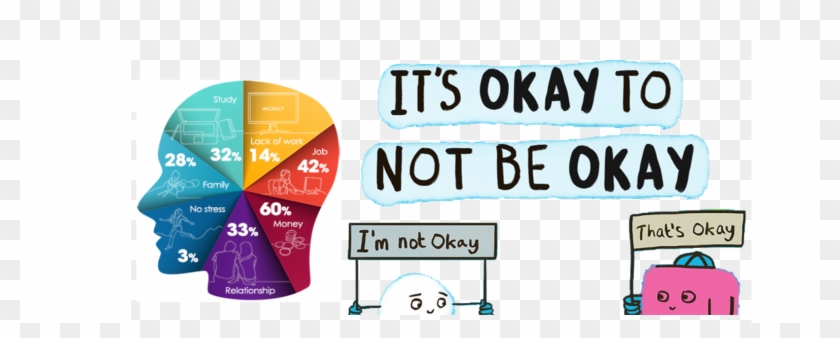
A Journey to Inner Healing: Unmasking the Depths of Mental Health
Many people around the world are engaging in a profound journey towards inner healing, unmasking the depths of mental health. The exploration of our mental well-being has become an urgent matter, as society recognizes the importance of understanding and addressing the complexities that lie within. Mental health encompasses various aspects of our lives, encompassing our emotions, thoughts, and behaviors. It is an inherent part of our existence, intertwining with our physical and social well-being, shaping our relationships, and influencing our overall quality of life.
Years of stigma and misunderstanding have clouded the topic of mental health, preventing individuals from seeking the help they need and deservedly deserve. However, the tides are slowly turning, as conversations surrounding mental health continue to gain momentum. We are embarking on a journey to unlock the secrets of our minds, peeling away the layers and unmasking the raw emotions that reside within. This voyage tirelessly seeks to understand the intricate workings of our mental states, aiming to empower individuals with the knowledge and tools they need to navigate the often treacherous waters of their own minds.
In this article, we will delve into the depths of mental health, embracing its complexities and unveiling the impact it has on our daily lives. We will explore the different facets of mental health, from common mental disorders to the importance of emotional well-being. Along the way, we will encounter stories of resilience, as individuals bravely embark on their personal journeys towards inner healing. Ultimately, this article aims to shed light on the significance of mental health, dismantling the barriers that prevent individuals from seeking the support they need and encouraging a society that embraces the importance of mental well-being. Join us as we embark on this transformative expedition into the vast terrain of the human mind.
Understanding Mental Health
Mental health is an essential aspect of our overall well-being and significantly influences how we think, feel, and behave. It encompasses our emotional, psychological, and social well-being, highlighting the importance of taking care of our minds just as we do our bodies. While mental health includes the absence of mental illnesses, it extends beyond that, representing a state of optimal functioning and resilience in the face of life’s challenges.
A comprehensive understanding of mental health involves recognizing the various factors that contribute to its complexity. Biological factors, such as genetics and brain chemistry, play a crucial role in shaping our mental health. Similarly, life experiences, such as trauma or abuse, can have a profound impact on our psychological well-being. Additionally, family history of mental health conditions and the overall social environment in which we grow and live in can influence our mental health trajectory.
It is crucial to dispel the stigma surrounding mental health challenges and prioritize open and compassionate conversations. Mental health conditions are common and can affect anyone, regardless of age, gender, or background. Acknowledging and accepting the importance of mental health allows individuals to seek appropriate support and treatment, leading to a better quality of life.
Understanding the intricacies of mental health empowers individuals to recognize early signs of distress, both in themselves and in others. By fostering a proactive approach, we can promote a society that values mental well-being and offers supportive resources. Together, we can create an environment that encourages healing, growth, and a deeper understanding of the depths of mental health.
Exploring Inner Struggles
In the journey towards attaining mental health, it is crucial to delve deep into our inner struggles. These internal challenges often manifest in various forms, impacting our overall well-being. Understanding and addressing these struggles can pave the way for healing and growth.
The first step in exploring our inner struggles is to acknowledge their existence. Oftentimes, we may try to bury or ignore these emotions, believing that they will fade away on their own. However, this avoidance only prolongs our suffering. By acknowledging and accepting these struggles, we give ourselves permission to begin the healing process.
Once we recognize our inner struggles, it is important to identify their root causes. These may stem from past traumas, unresolved conflicts, or ongoing stressors in our lives. Unmasking these depths requires introspection and self-reflection. It may be helpful to seek support from a trusted professional who can guide us through this process.

Lastly, exploring our inner struggles involves developing effective coping mechanisms. By finding healthy ways to navigate these challenges, we can minimize their impact on our mental health. This includes practicing self-care, engaging in activities that bring us joy, and fostering meaningful connections with others. Through these strategies, we can cultivate resilience and strengthen our emotional well-being.
In conclusion, embarking on a journey to inner healing requires us to courageously explore our inner struggles. By acknowledging their presence, identifying their root causes, and developing effective coping mechanisms, we can gain a deeper understanding of ourselves and pave the way for lasting mental health.
Finding Healing and Recovery
Finding healing and recovery from mental health challenges is a deeply personal journey. It requires self-reflection, perseverance, and a willingness to seek support. Here are some key steps to embark on this transformative path:
Self-Awareness: The first step towards healing is acknowledging and understanding your mental health concerns. Take time to reflect on your thoughts, emotions, and behaviors, and identify any patterns or triggers that contribute to your distress. This self-awareness will serve as a foundation for further growth and healing.
Seeking Professional Help: It is important to remember that you don’t have to face these challenges alone. Reach out to mental health professionals who can offer guidance and support. Whether it’s a therapist, counselor, or psychiatrist, they can provide you with the tools and strategies to navigate your healing process effectively.
Building a Support Network: Surrounding yourself with a supportive network of friends, family, and loved ones can make a significant difference in your recovery journey. Share your experiences and concerns with trusted individuals who can offer empathy, understanding, and encouragement. Connecting with others who have gone through similar struggles can also provide invaluable support.
What Does Acceptance Mean
Remember, healing is a gradual process that requires time and patience. Take small steps every day towards self-care, practice healthy coping mechanisms, and celebrate your progress along the way. You are not alone, and there is always hope for a brighter, healthier future.



